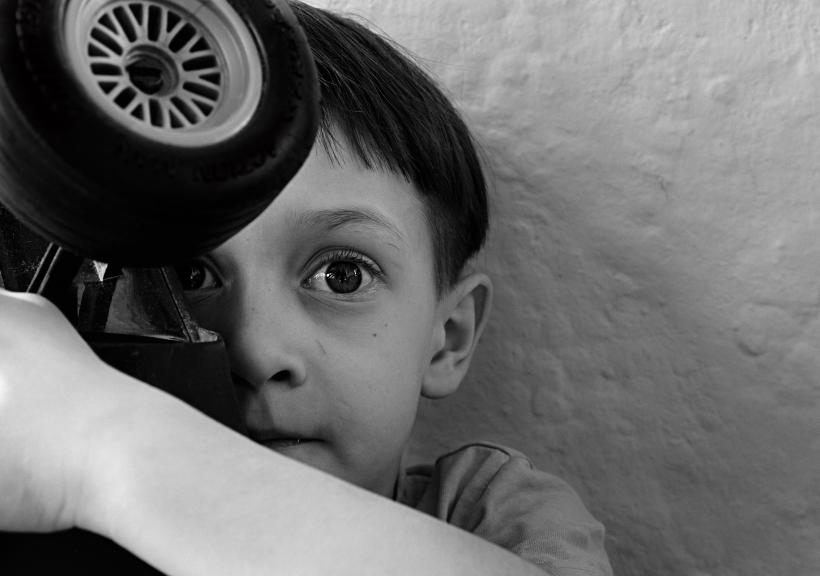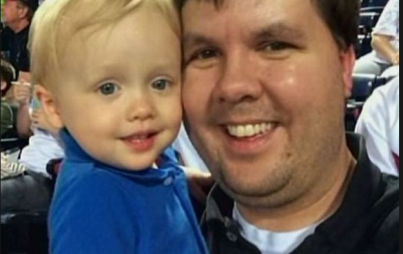
Met at first with part sympathy and part scorn, it’s safe to safe the tides have completely turned on Justin Ross Harris, aka the father who “sexted while his son slowly died in a hot car.” On June 18, Harris left his 22 month-old son in his car seat, where the poor toddler died of hyperthermia in the scorching Georgia sun. Initially branded as a terrible accident, solid evidence painting Harris as a reprehensible cad continues to mount. Not only was the married father sexting six women and girls (one of whom was 17) the day of his son’s death, but even more upsettingly, video footage shows him returning to his car during the 7 hours his helpless child was strapped into his seat—and then going back inside to work. Oh, and a number of damning internet searches have also been turned up, such as “how to survive in prison,” a visit to a Reddit page titled “child-free,” and various online investigations—that both he and his wife conducted—on how hot a car had to be to kill a child.
Meanwhile, as all this horrifying evidence piled up against Harris, this weekend saw yet another almost-tragedy involving a child in a too-hot automobile. Parents Matthew Brown and Brittany Zanetti left their 15 month-old daughter strapped into a car outside of a store in Tennessee. Fortunately, this time, firefighters broke the window of the car and rescued the little girl from the 90+ degree car before it was too late. This after a June incident that saw yet another 9 month-old girl perish in the back of a hot truck. So while it’s fair to label Harris as a monster who likely had no business parenting, the seeming prevalence of these incidents provokes a lot of questions.
First off, how common is this unthinkable trend? Far more than we’d like to believe, is the answer. While there is no formal government agency monitoring incidents of child hyperthermia, former marketing executive Janette Fennell runs the nonprofit Kids and Cars devoted to increasing car safety for children—which tracks some of the most depressing data out there. According to the site, 44 children died of car-related heat stroke last year. It’s a tragic number that we may be on track to beat this year; San Francisco State University has already counted 13 similar deaths in 2014 already.
So who are these parents? Who could possibly do such a horrific thing? As an in-depth Washington Post article on the phenomenon puts it:
The wealthy do, it turns out. And the poor, and the middle class. Parents of all ages and ethnicities do it... It happens to the chronically absent-minded and to the fanatically organized, to the college-educated and to the marginally literate.
Parents like U.S. military analyst Lyn Balfour do it. Seven years ago, Balfour, now an activist for car-child safety, left her 9-month old son in the car, mistakenly thinking her bundle of joy was with the babysitter. He died in the hot car, Balfour completely unaware. It seems impossible that Balfour, a devoted and loving mother—and other such nurturing parents as CenturyLink supervisor Reginald McKinnon and electrician Andrew Culpepper and internationally-renowned expert on learning Mark Warschauer—could let such a tragedy happen. And yet they do.
According to David Diamond, a professor of molecular physiology at the University of South Florida, “Memory is a machine and it is not flawless... If you’re capable of forgetting your cellphone, you are potentially capable of forgetting your child.” In incidents involving infant deaths in cars, Diamond reports that “the quality of prior parental care seems to be irrelevant.” Instead, “the important factors that keep showing up involve a combination of stress, emotion, lack of sleep and change in routine.”
So perhaps more unnerving than one sick, sexting man’s plans to achieve a childless life, is the reality that any—all—of us, under the precise circumstances in this crazed, nonstop, technology-obsessed world, are capable of enabling such tragedies. Justin Ross Harris, we sure hope your “how to survive in prison” searches weren’t for naught. But for the rest of us? Perhaps the most valuable question isn’t “who is capable of such a thing?” but instead, “what can we do to prevent it?” for, as according to Kids and Cars founder Fennel, "the worst thing people can do is think it can't happen to them."
Image courtesy of ThinkStock


